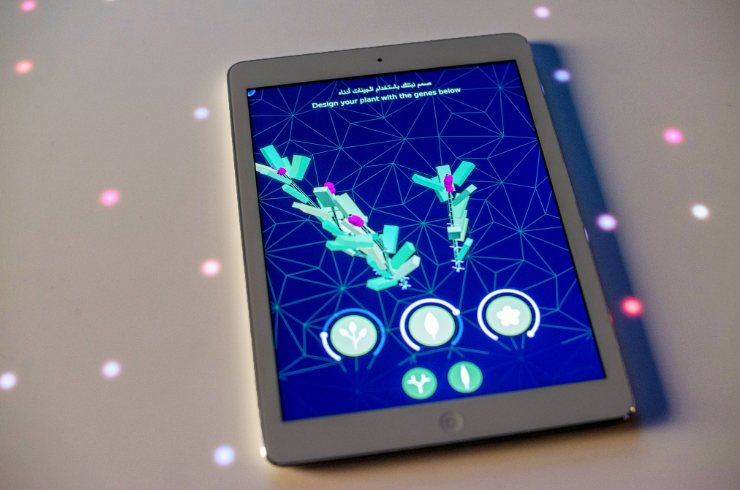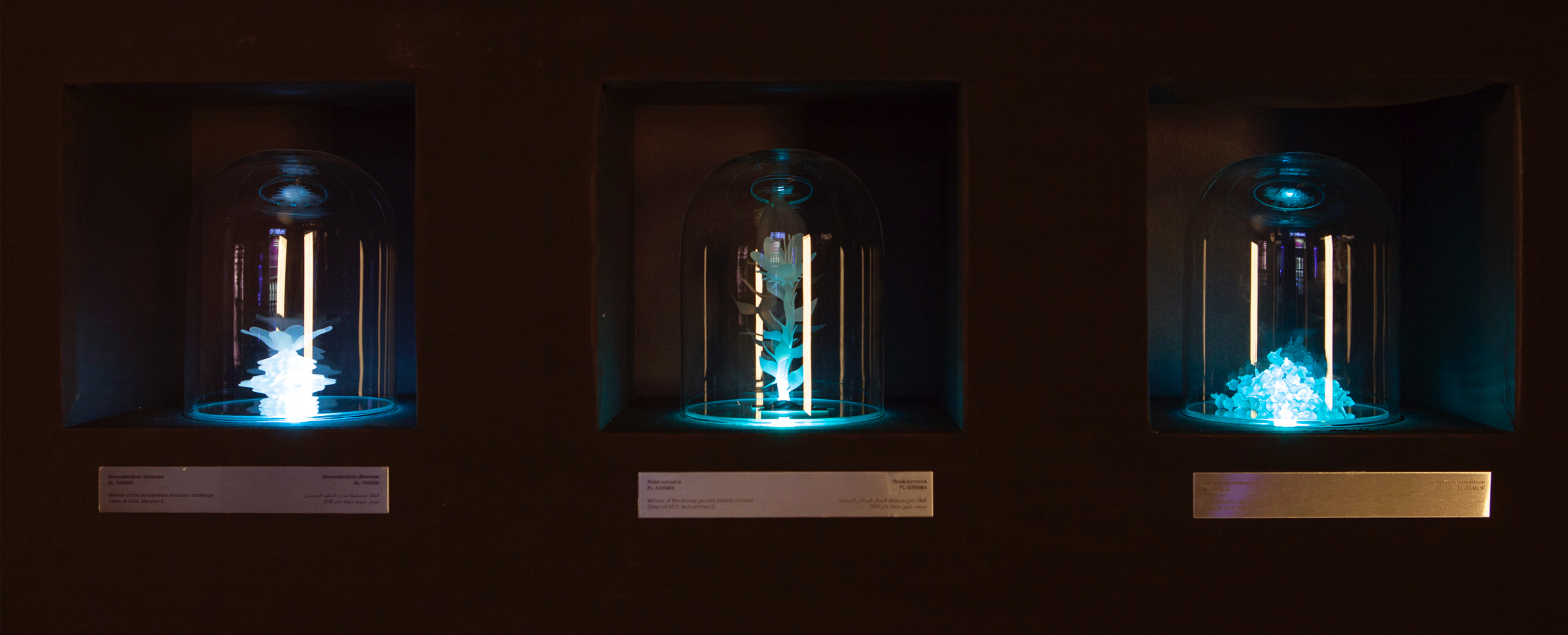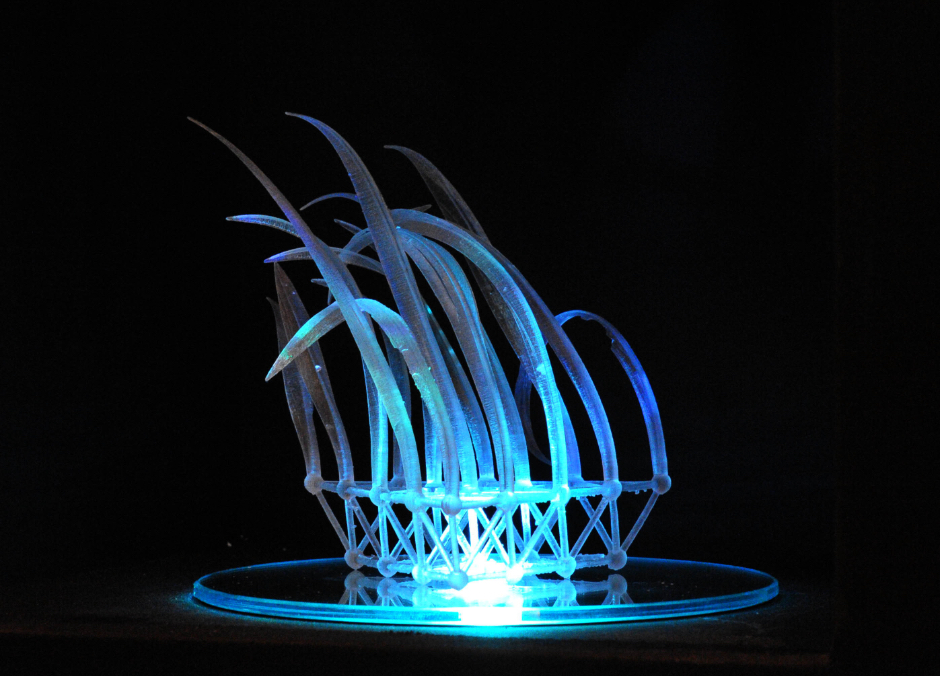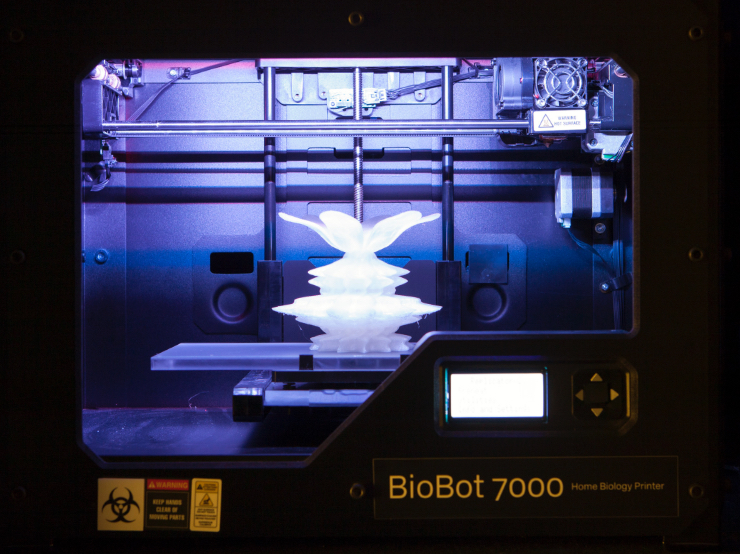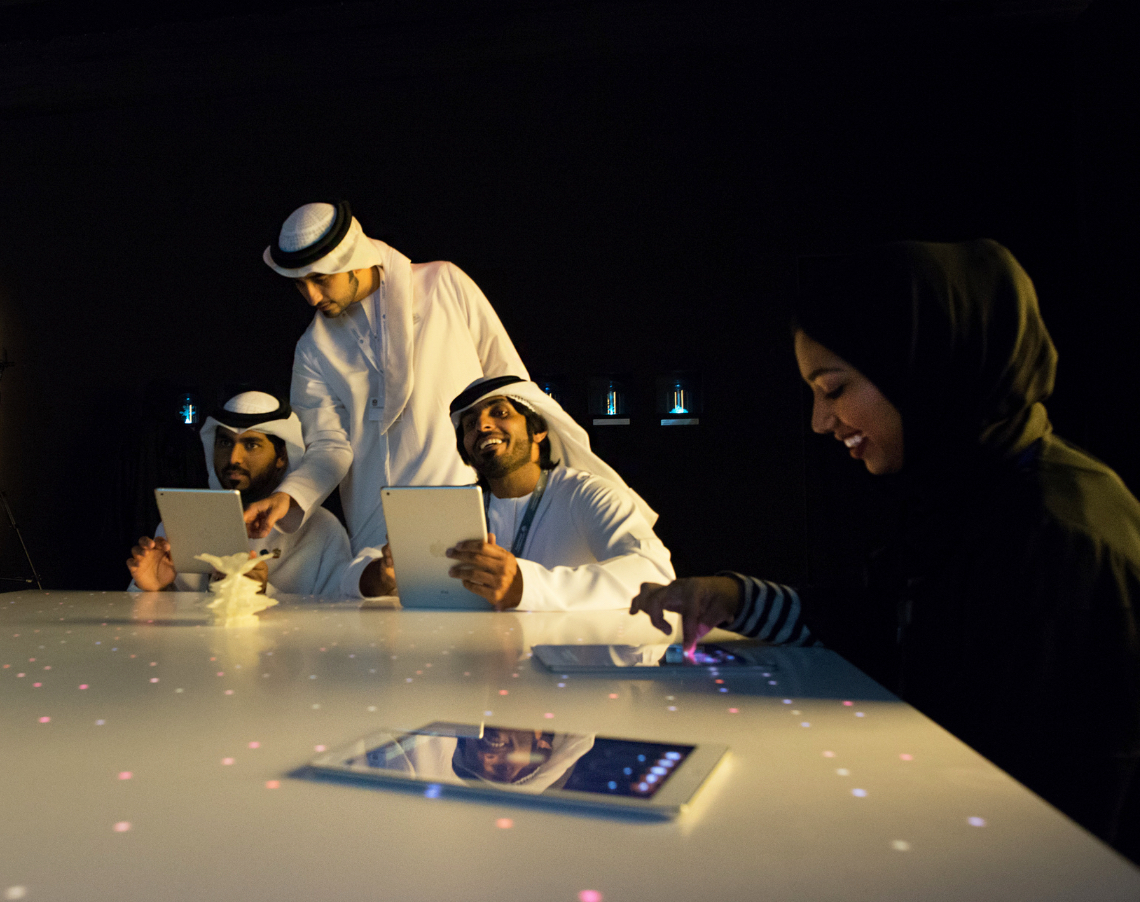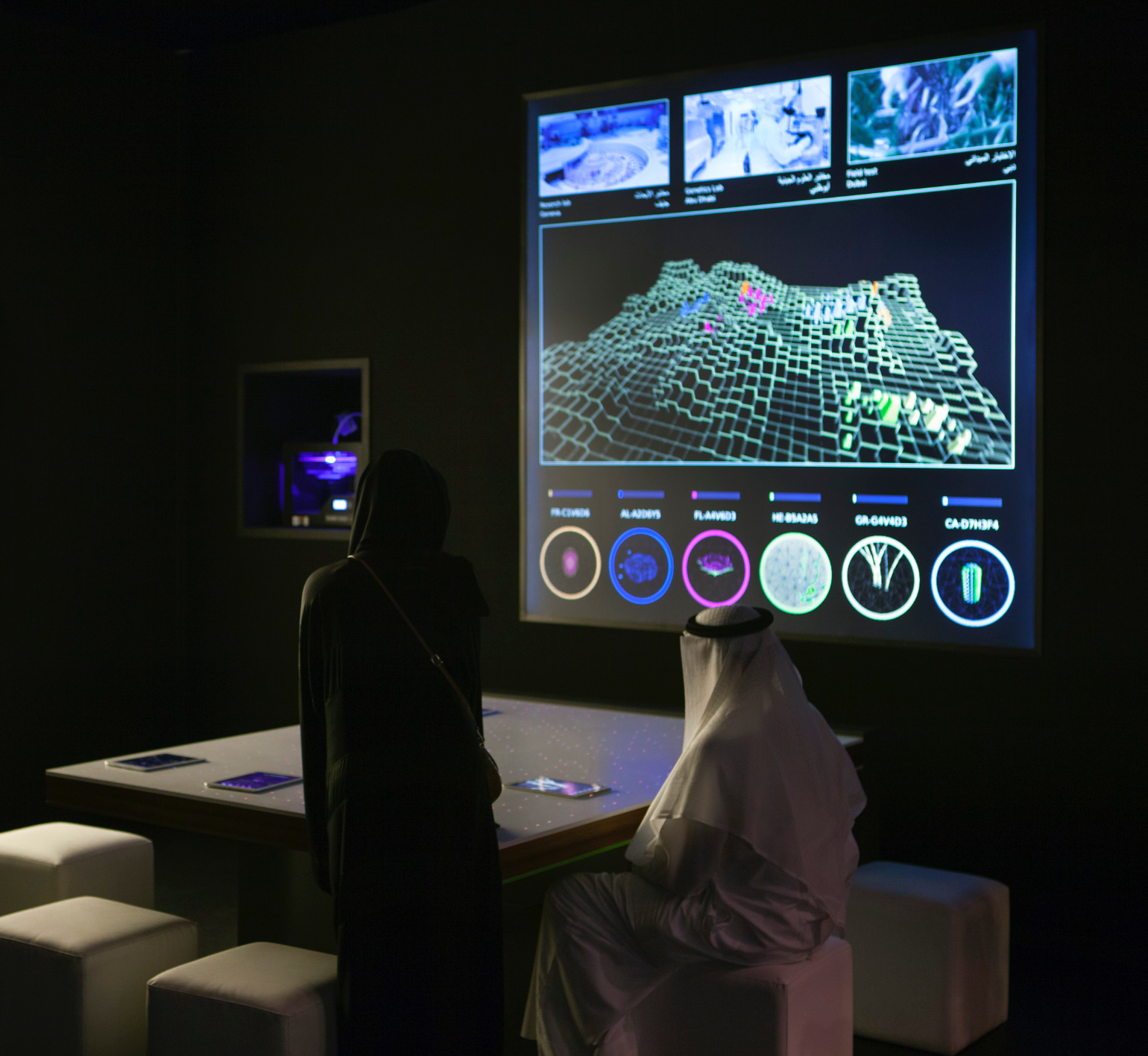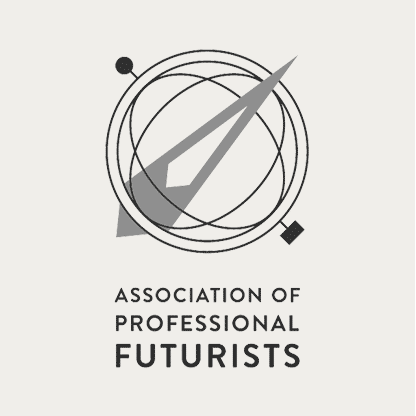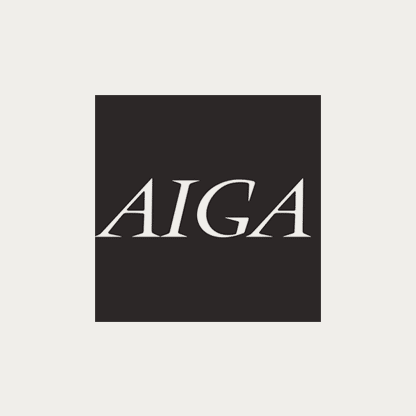Future government services
Prime Minister's Office, UAE
Tellart has created a series of exhibitions for global leaders and policy-makers attending the annual World Government Summit in Dubai. These exhibitions invite visitors into an immersive, multisensory scenario set in the future. The projects are designed to spark meaningful debate and have directly inspired numerous government initiatives in the UAE, including the creation of a permanent Museum of the Future.
This first exhibition, set in 2025, proposed ways for governments to better serve their citizens by designing technology-enabled public services that equal or surpass the quality standards expected of consumer services.
“This is highly innovative and relies on an experiential approach to futuring… It provides us the possibility of stepping outside the Country Club Futures scene and providing more culturally nuanced but still globally significant artefacts.”
Alexander Porter, co-founder of Scatter, in WAM, Emirates News Agency
Future of Border Patrol
Dubai acts as a global hub in a world facing increasing migration and travel. Visitors entering the exhibition passed through a future border patrol station where they were welcomed with a hand towel expressing the country's tradition of hospitality.
Visitors posed for a full-body data scan. Their hand towel was also scanned for biological pathogens before they were “cleared for entry” to the exhibition.
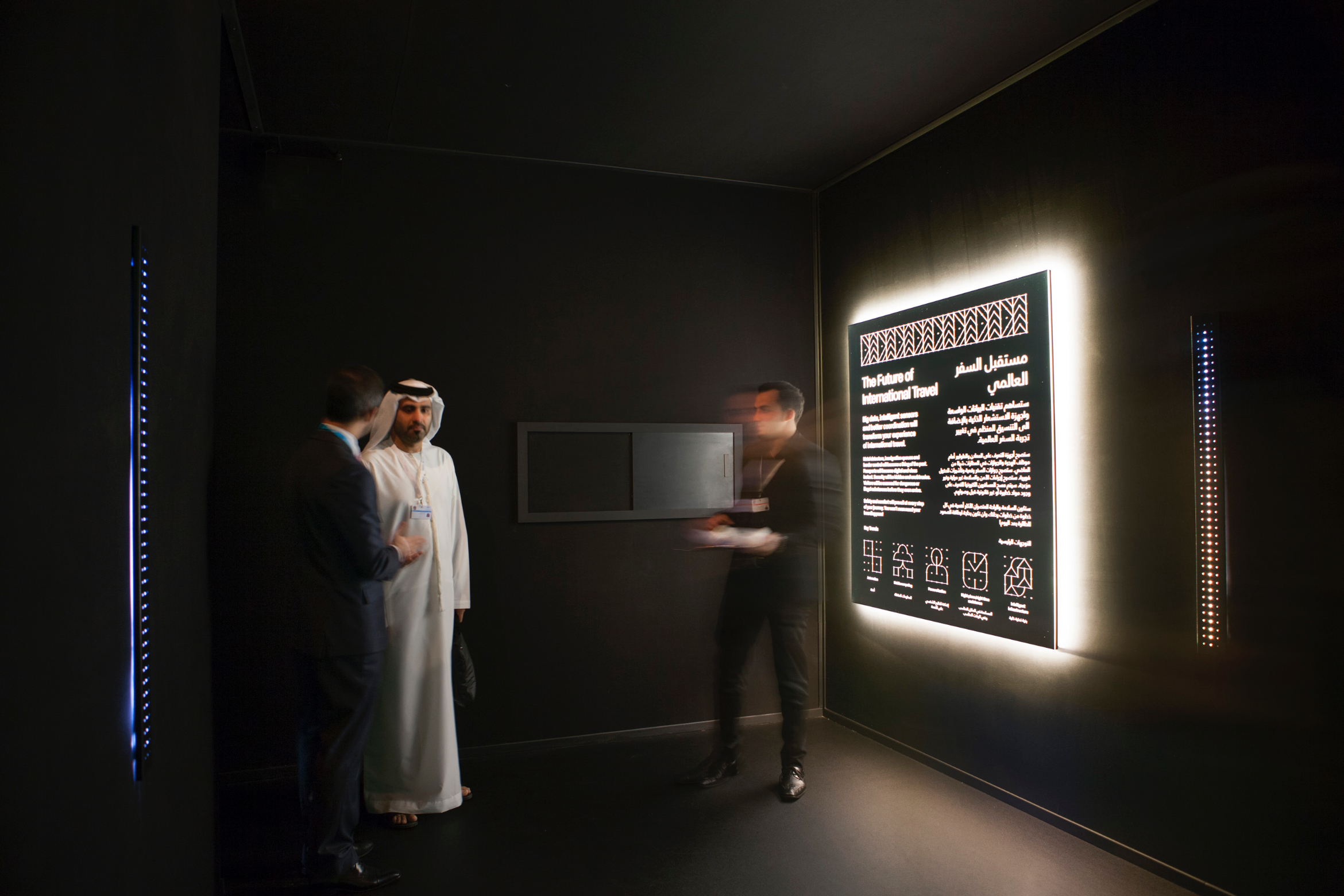
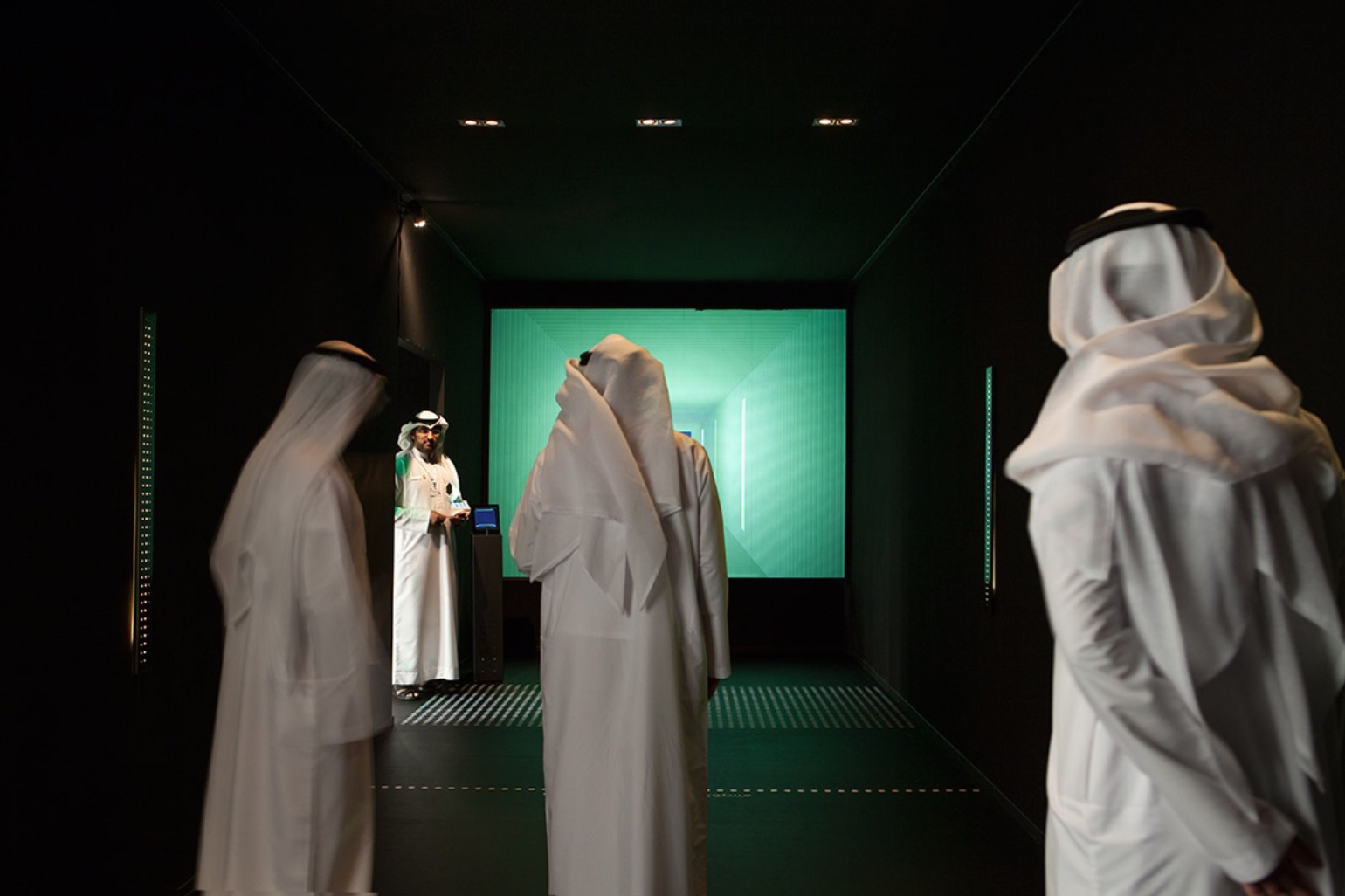
Future of Healthcare
This exhibit proposed a holistic approach to healthcare that is both preventive and curative. We created an interactive theatrical environment in which networked intelligent objects in the home provide a ubiquitous, high-touch interface to the healthcare system.
The smart mirror delivers daily checkups as people get ready for their day. The hand scan identifies each family member.
“Transformationally awesome, utterly effective, and a pleasure working with such a world class team.”
Dr. Noah Raford, Special Projects Advisor, UAE Prime Minister's Office
This “quantified self” toothbrush uses nanorobotic toothpaste to monitor gum health, a key indicator of other health conditions.
The smart fork provides tailored dietary advice.
Future of Education
Two education exhibits proposed a future classroom environment that prizes collaboration, playful exploration and “learning through doing.”
1. Digital + sensory learning
The digital sandtable is an example of how digital technology can enhance embodied learning at the primary school level. As students manipulate the sand, the coloured projection map teaches them about watersheds, ecosystems and climate change.
2. STEM + design
For more complex subjects such as biology and genetics, we created a social learning game in which students design genetically modified plants for a simulated hostile environment such as a desert. They learn about what makes plants successful through experimentation, prototyping and group discussion.
Future of Smart Cities
The Smart City overlook showed visitors a panoramic view of 2025 Dubai. An augmented reality overlay called out systemic changes in the city, such as green spaces replacing motorways and new traffic lanes for driverless cars.
“This to us was a super exciting kind of avenue for where speculative design can really make an impact on the world.”
Core77 Design Awards Jury Comments
Highlights
- Largest “design futures” exhibit to date
- Directly inspired the International Drones for Good award and other
- government initiatives
- Launched at the Government Summit in Dubai
- Officially opened by His Highness Sheikh Mohammed bin Rashid Al Maktoum
- 3,500 senior government officials attended from around the world
